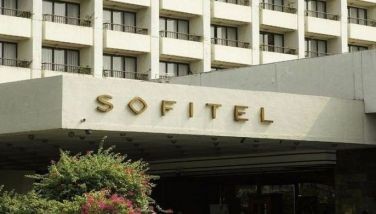Sad tale of forgetful people

Six out of every 10 Filipinos today will find no relevance in the 30th celebration of the Philippine revolution of 1986, also known as People Power Revolution, that culminated on Feb. 25 of that year when then President Ferdinand Marcos left his seat of power to go to the United States.
Born after that historic year, the post EDSA babies (EDSA, specifically the stretch from Camp Aguinaldo to Ortigas in Pasig, was the site of a massive congregation of patriotic Filipinos who held vigils for four days to renounce a dictatorship by Marcos that spanned more than two decades) are now the majority of the nation’s 100 million-strong population.
None of them experienced Marcos’ assent into power, starting with his election in 1965, continuing with his reelection in 1969 (yes, presidents could get elected twice, and the period of term was four years), and forcing through with a Martial Law regime that started in 1972 (one year before his last term could end) until his departure in 1986.
While they can still remember Corazon Aquino as the president who came after Marcos, there is little significance to them of the murder (still unresolved) of her husband, Benigno or Ninoy, in 1983 the moment he stepped on Philippine soil after a three-year political exile in the US.
Neither do our young appreciate the spark this created and the ensuing political and military drama that unfolded and the culminating marred snap election that ultimately sparked people’s anger.
Was the EDSA revolution that insignificant in our history as a people that our youth today have no emotional affinity to it? Could our educational system be the culprit? Have the elders not imbued in their young the pride of being a country that chased out a dictatorship by peaceful means?
Power of media
This brings me to thoughts of World War II that started in 1939 and ended in 1945. The world doesn’t commemorate the end of this war (Germany’s total defeat in May, and Japan’s in August) with as much fanfare in recent years, but the youth, even Filipinos, seem to regard this with more sanctity than they do People Power.
Perhaps this can be attributed to the millions of lost lives (including the horrors of the Holocaust and the Nagasaki atom bombing), disruptions in normal life and displacement of hundreds of millions, and the massive devastation of property that came with the invasions and counter-invasions.
WW II was immortalized, not just in the world’s history books, but through numerous movies and television series. The latter, it seems, is a more powerful medium to remind humans of their past. Heck, most Filipinos may just know more about the Ice Age (through popular cartoon movies) than People Power.
Good movies
These days, sad to say, history has been muted in the written pages of books or even the Internet by the potency of the silver screen, glorified by actors and molded by the skill of movie directors and producers.
Just as the movie “Heneral Luna” opened the minds of the Filipino nation to pages in our old history books where American atrocities existed and nationalism had its many facets, a good movie about the 1986 EDSA revolution will likely refresh our youth of why this chapter in our history needs to be revered.
Remember the 1961 pop song about sad movies always making you sad, I guess a patriotic movie will always make one feel patriotic. Bringing life alive in people’s mind and hearts, and moving them is indeed the power of the movie camera’s eye.
Mere sliver of reality byte
In the end, don’t blame teachers or the Philippine history curriculum. Our youth today live in an information age where there is an avalanche of knowledge at their fingertips that makes the Philippine revolution of 1986 a mere sliver of reality byte.
Even if you Google peaceful revolutions, Mahatma Gandhi seems to best own the phrase (to be precise, it was termed as non-violence resistance or NVR) when he led India to independence from British rule. NVR, in fact, is enshrined in the earliest recorded in world history through the ancient Chinese’s Mohism movement.
The Philippines’ People Power is included in the list of about 60 others that happened at various times of the world’s history and in different civilizations and nations where repression had become unbearable to the population or certain controlling sectors of the economy, military or politics.
Benefits youth enjoy today
Nevertheless, even if we get fewer people who will clog EDSA today and in future annual celebrations, there is no denying change is still upon us. Our youth may not realize just how valuable democracy is (as against those who actually participated in the struggles to end the Marcoses’ long illegal hold on political power), but they are enjoying its benefits in many ways today.
We have a new Constitution now that more than ever enshrines the beliefs of freedom.
Our youth today benefit from a system that does not repress their right to choose their leaders. Local politics has become more vibrant, thanks to the Local Government Code that has allowed people power to be more participatory at the basic governance level.
We are once again able to vote for our political leaders at the national level, something Filipinos during the Martial Law regime could not do. There is also a better balance of power among the judiciary, executive, and legislative, which allows for more protection of basic human rights.
Post-Marcos era still has flaws
Yes, living post-Marcos era still has its flaws, but these should be regarded as challenges that need to be corrected and remedied so the process of improving life continues.
This, dear friends, post-Martial Law babies, children of the new millennium, and Filipinos yet to be born, is the legacy of the Philippine revolution of 1986. It is the most recent great leap we did as a nation to fight for our dignity as human beings.
It is the continuation of the struggles of our forefathers against the subjugation of foreign powers, to gain the right to put food on the table, build a decent shelter, and send our children to better schools, and to dream of having a better life.
Never ever again
We who were in the midst of those decades of repression will understandably put more value to that four-day standstill on EDSA. We will continue to make our children understand how precious it is to have gained back this liberty called democracy.
We just hope they will value this legacy of change, and to use it to never have to face a similar repressive regime. Ever.
Facebook and Twitter
We are actively using two social networking websites to reach out more often and even interact with and engage our readers, friends and colleagues in the various areas of interest that I tackle in my column. Please like us at www.facebook.com and follow us at www.twitter.com/ReyGamboa.
Should you wish to share any insights, write me at Link Edge, 25th Floor, 139 Corporate Center, Valero Street, Salcedo Village, 1227 Makati City. Or e-mail me at [email protected]. For a compilation of previous articles, visit www.BizlinksPhilippines.net.
- Latest
- Trending































